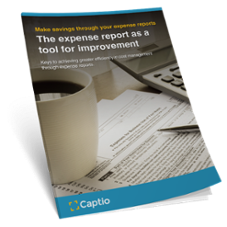In times like those we currently face, in which every hour and euro counts, companies are embroiled in a race to do more with less. Tightening every screw in order to improve the efficiency of processes in the management of travel expenses, allowances and mileage is crucial to be able to compete under the best conditions.
To succeed in a competitive setting, a key principle to abide by is focusing on the company’s business and doing it as well as possible. However, adding pressure in the opposite direction, companies regularly have to perform a series of processes that are necessary for their day-to-day running.
FOCUS ON THE BUSINESS, NOT ON THE TASKS THAT SURROUND IT
These are tasks that do not add a direct value to the company, but they are further steps towards achieving an objective. Booking tickets for a flight, paying rental fees and managing travel expenses are examples of small things that do not add any great value to the company but which are, nevertheless, necessary for its everyday operations.
One of the options for focusing this type of task is outsourcing. However, there are processes that are so integrated within the nature of the company that this can be a hard decision to make. The option must therefore be to perform these tasks in such an efficient way that expenditure on the resource allocated to it is minimal.
Let’s take the example of a sales representative. Their core activity is selling. If they are not selling, a potential opportunity is being missed with the corresponding cost involved. As such, reducing the time that they have to spend on paperwork, such as drafting their expense report- is a useful improvement that must be treated as a priority.
As well as the opportunity cost, there is also the cost of the time that the salesperson has to spend on this administrative task that adds no value to the company. If we bear in mind that drafting expense reports is a task each member of the team has to perform (at least) once a month, a quick mental calculation can be done to ascertain the amount of resources that the company is spending on secondary work.
HOW LONG DOES A SALES DIRECTOR, HEAD OF DEPARTMENT OR PROJECT MANAGER HAVE TO SPEND ON REVIEWING AND APPROVING EXPENSES?
The same logic applies to the other roles involved in the process. How long should a Sales Director, Head of Department or Project Manager have to spend on reviewing and approving the expenses reported to them by members of their team? As little as possible!





